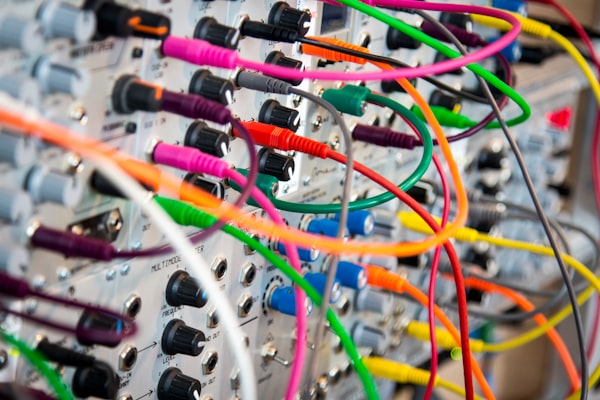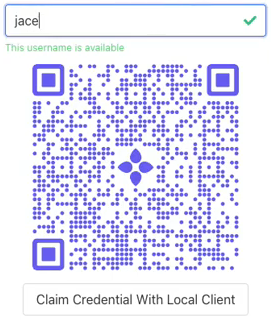The Universal Resolver is a utility developed by the community at DIF to resolve Decentralized Identifiers (DIDs) across many different DID methods, based on the W3C DID Core 1.0 and DID Resolution specifications. It is a work item of the DIF Identifiers & Discovery Working Group, and is provided as a tool to support interoperability efforts and enable testing.
New DID methods
We continue to receive great contributions from the community in the form of new drivers as well as updates to existing ones, in order to support as many DID methods as possible. Several more DID methods have recently been added to the Universal Resolver, including:
-
did:indy (the long-awaited upgrade of the original did:sov method) - See https://hyperledger.github.io/indy-did-method/
-
did:cheqd (from the Cheqd community) - See https://github.com/cheqd/did-resolver
-
did:com (from Commercio Network) - See https://commercio.network/
-
did:ala
-
Did:everscale
The Universal Resolver can now resolve 45 DID methods, and more are being added regularly. Visit https://dev.uniresolver.io/ to see the full list of supported methods, and visit this github page to contribute a driver for a DID method. In the event of a problem resolving a did or with driver functions, the contributor has 30 days to resolve the issue before the driver and DID method get delisted. This ensures that the list of methods on the Universal Resolver is regularly tested, and remains updated and functional.
For example, try the following commands to resolve DIDs to their DID documents:
curl -X GET https://dev.uniresolver.io/1.0/identifiers/did:indy:idunion:BDrEcHc8Tb4Lb2VyQZWEDE
curl -X GET https://dev.uniresolver.io/1.0/identifiers/did:cheqd:mainnet:zF7rhDBfUt9d1gJPjx7s1JXfUY7oVWkY
curl -X GET https://dev.uniresolver.io/1.0/identifiers/did:com:1l6zglh8pvcrjtahsvds2qmfpn0hv83vn8f9cf3
Or try opening the UI to resolve the above DIDs:
https://dev.uniresolver.io/#did:indy:idunion:BDrEcHc8Tb4Lb2VyQZWEDE
https://dev.uniresolver.io/#did:cheqd:mainnet:zF7rhDBfUt9d1gJPjx7s1JXfUY7oVWkY
[https://dev.uniresolver.io/#did:com:1l6zglh8pvcrjtahsvds2qmfpn0hv83vn8f9cf3
](https://dev.uniresolver.io/#did:com:1l6zglh8pvcrjtahsvds2qmfpn0hv83vn8f9cf3)
New hosting environment
It seems the community has been just as excited about the Universal Resolver as we are, and it has seen traffic grow steadily over the past few months: In order to serve this increased demand the hosting environment of the Universal Resolver has been upgraded and should now be able to handle additional load. DIF's public instance of the Universal Resolver can be reached at https://resolver.identity.foundation/ and https://dev.uniresolver.io/.
Keep in mind however that this instance is meant for experimentation and testing only, NOT as a production service. It should not be used in situations where a reliable DID Resolution service is needed, or when DIDs are being resolved that are potentially sensitive from a privacy perspective. In general, self-hosting the Universal Resolver, or using other client-side DID Resolution tools, is preferable over relying on the public DIF-hosted instance.
Do you have any interesting applications or examples of where you have used the Universal Resolver? We would love to hear your experiences of it; constructive feedback is always welcome. Get in touch with us directly at ops@identity.foundation or attend one of the meetings of the DIF Identifiers & DIscovery Working Group to discuss. For further backstory on the Universal Resolver, see this blog post and this webinar.
This new-and-improved Universal Resolver joins other tools, such as the Universal Registrar, a DIF community-maintained tool to create, update and deactivate Decentralized Identifiers (DIDs). DIF has also recently published version 2 of the DIDComm protocol spec and version 2 of the Presentation Exchange Protocol. Other community tooling includes items like the Verifier Universal Interface, standard APIs to enable interoperability between ID Wallets and Verifier components, and the completed Sidetree specification, a protocol for creating scalable Decentralized Identifier networks that can run atop any existing decentralized anchoring system and be as open, public, and permissionless as the underlying anchoring systems they utilize. The most popular implementation of Sidetree currently is ION (the Decentralized Identity Overlay Network), a layer 2 system. Read more about ION at Microsoft's blog here!
How else can you dive into the identity community? Joining DIF is a great way to start; you are invited to contribute, learn and connect with our diverse community. Don't forget to subscribe to our monthly newsletter on our website here to stay up to date on developments at DIF and in the wider digital identity landscape, and to follow us on Twitter & LinkedIn!








